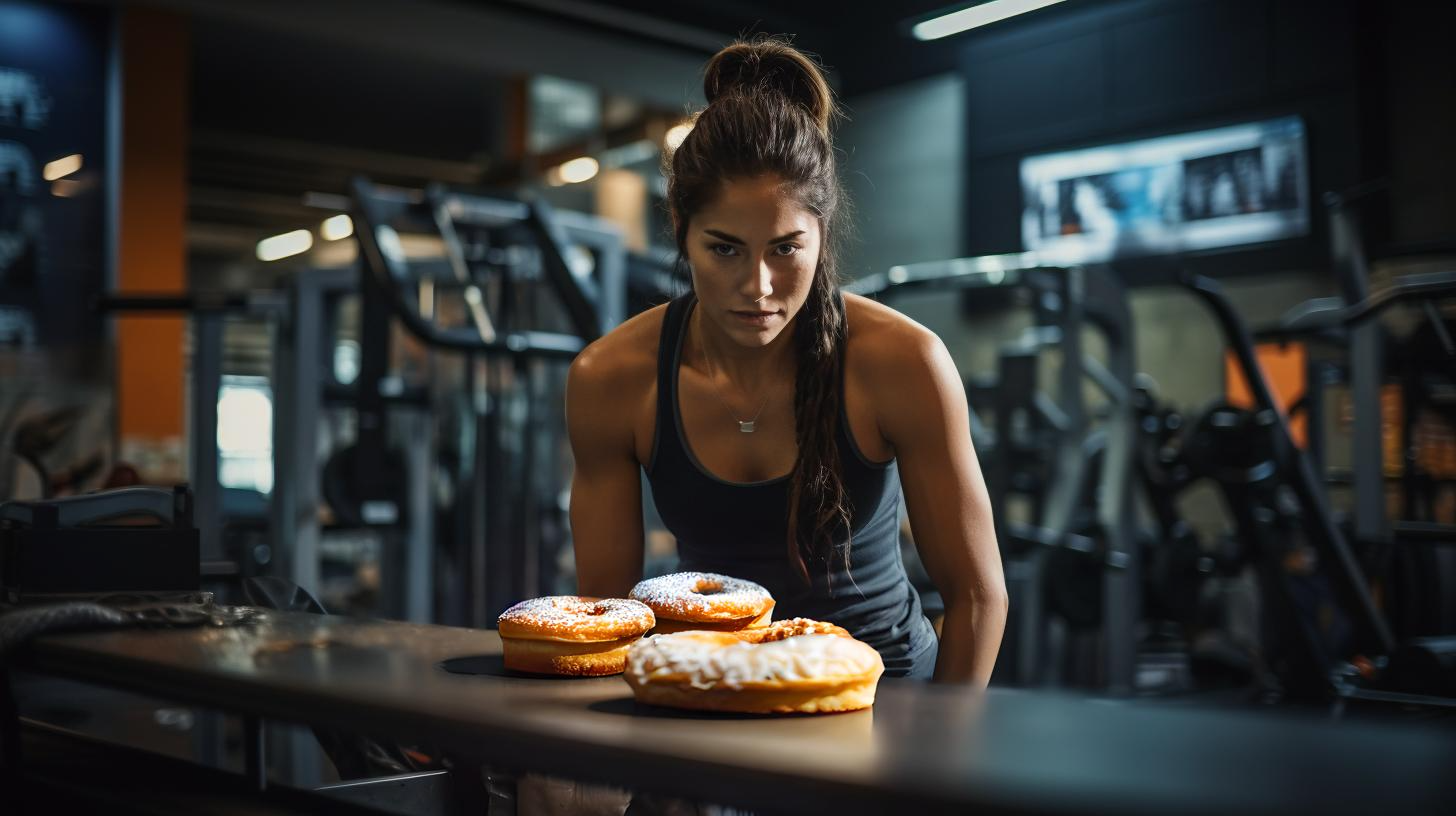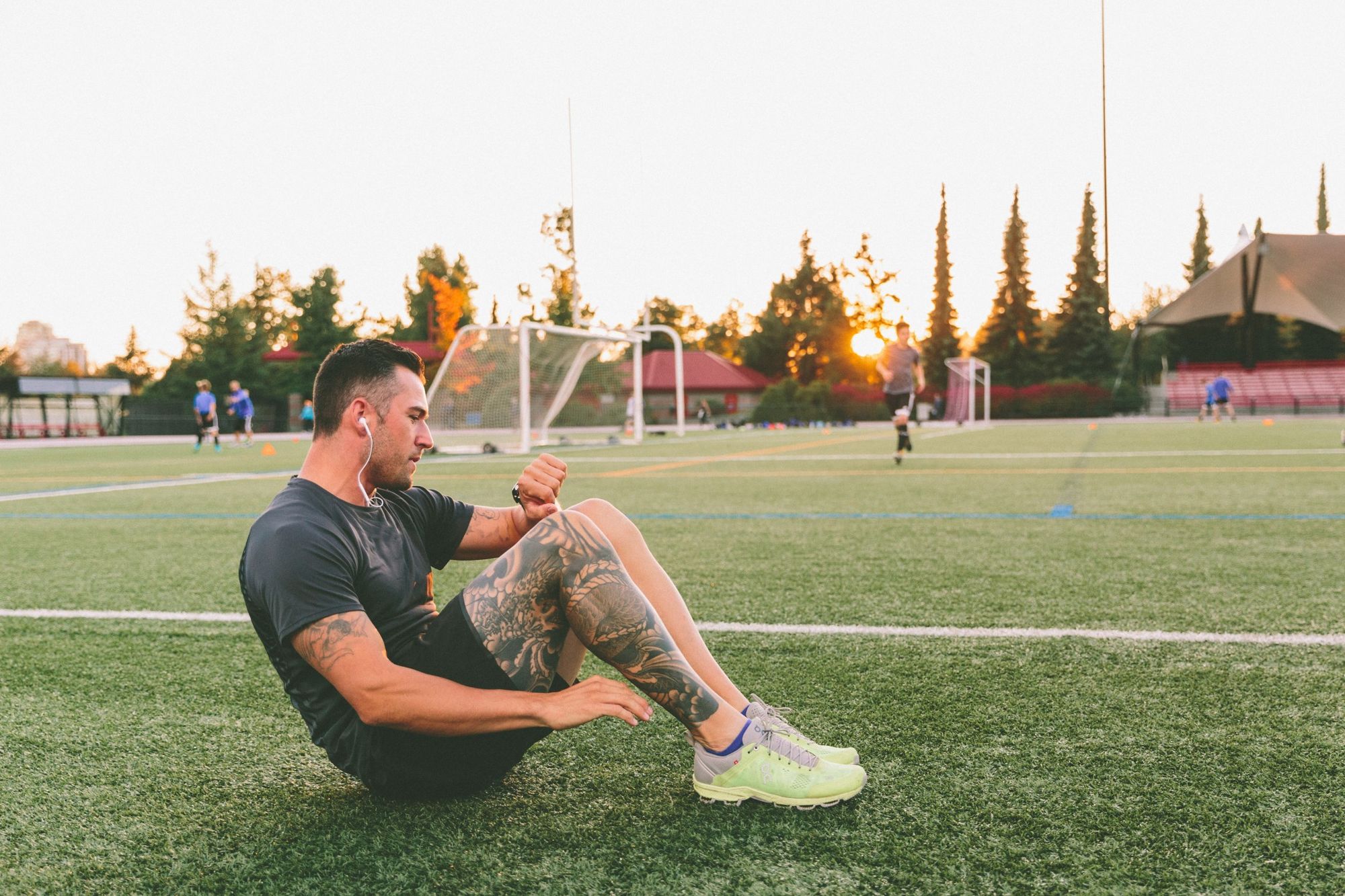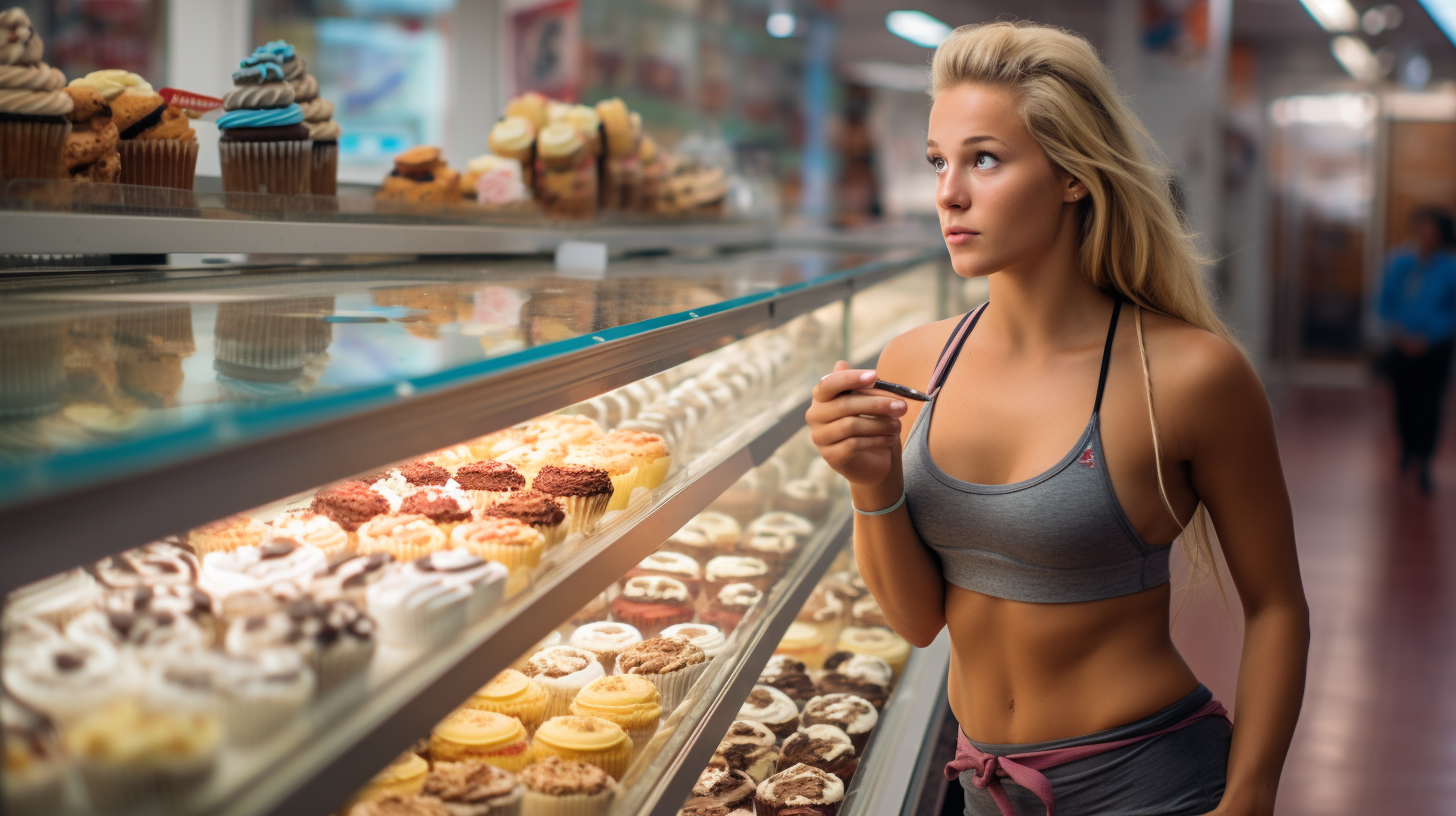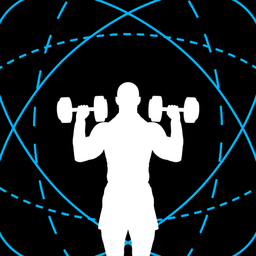Period Cravings: Are They Really a Thing? (And How to Deal)
Can you blame midnight runs to the pizza joint on period cravings? Or are you just greedy? Here's the answer — plus what you can do about it.

Your period is almost here.
And it’s like someone’s switched on a carbs + sweets magnet in your brain — making it impossible for you to resist the siren call of family-sized potato chip bags, thick-ass chocolate chip cookies, and [insert your usual period craving].
Of course, that first bite (or two) is always immensely gratifying.
But the guilt and horror can quickly set in when you realize you’re somehow elbow-deep into that bag of chips/polishing off the last crumbs from the 5 huge cookies:
"Omg, are period cravings a thing? Or am I just greedy?"
Well, we shall see.
Are period cravings a thing?
Before you beat yourself up, rest assured that period cravings are a thing (i.e., it’s not just a “you-thing”).
Research consistently shows that, during the premenstrual period, women tend to experience an increased desire for sugar-, salt-, and fat-rich foods, aligning with anecdotal reports of common period cravings, such as:
🥐 Pastries
🍟 Snacks
🍨 Desserts
OK. So, period cravings are a thing. But why?
Remember what we said about a newly switched-on carbs + sweets magnet in your brain?
It's a pretty accurate metaphor (like, maybe 70%?) for what happens in the premenstrual period.
A 2023 study published in Nature Metabolism found that your brain becomes less sensitive to the hormone insulin during the luteal phase (the time between ovulation and your next period).
As a result, the researchers believe that this insulin resistance in the brain could trigger period cravings by:
- Making energy production for the rest of the body more challenging (FYI, insulin's primary function is to help your body take up freely circulating blood sugar for energy)
- Interfering with insulin’s other roles, such as appetite control
Of course, it’s unlikely for a decrease in insulin sensitivity in the brain to be the only contributing factor to period cravings. But until further research is done … it's our best explanation for now.
What’s the solution?
Is it possible for you to prevent insulin resistance in your brain during the premenstrual period? So, you’d avoid getting hit by period cravings?
Well. Research doesn’t say anything about that.
However, you may still find it beneficial to help your brain stay as sensitive to insulin as possible* by adopting or maintaining the following healthy lifestyle habits:
- Getting 7 to 9 hours of good-quality sleep nightly
- Exercising (a good mix of cardio and strength training)
- Using stress management techniques that work for you
*Think about it this way. If you start with a higher insulin sensitivity, the decrease associated with the premenstrual period is less likely to affect you as much.
That said, you might not even need to bother preventing period cravings.
Indulge in your period cravings … and not gain weight?
Wait, what? Wouldn't you balloon from all that stuffing of your face?
A 2018 study published in RBGO Gynecology & Obstetrics suggests no.
Despite the participants' greater desire for sugar-, salt-, and fat-rich foods in the premenstrual period, they did not actually:
- Eat more calories or
- Change their diet's overall macronutrient distribution
Fantastic news. 🎉
What about other goals?
Right. But what if your goal isn’t weight loss? What if it’s hypertrophy or strength?
In such cases, over-indulging in your period cravings could end up hurting your performance in the gym. During your training session, you could feel lethargic, weak, and generally unmotivated.
Ouch. So, what can you do? Here are a few tips:
Speaking of … is it worth investing in a continuous glucose monitor?

Prioritize a healthy lifestyle
Ultimately, here are the 2 key messages to leave with.
First, period cravings are a natural part of the menstrual cycle. And second, you don't have to be concerned about preventing period cravings as long as you're keeping up with healthy, appetite-regulating habits.
Psst, here are 5 ways to stop appetite naturally:

At this point, you should be pretty clear on what to do on the nutrition side of things — a good variety of minimally processed foods with a focus on protein, etc.
So, let’s spend the remaining article kind of rehashing and expanding on the benefits of strength training; it:
- Counts toward your daily exercise recommendations (+ reminder: it improves insulin sensitivity)
- Builds muscle mass, which, beyond being good in and of itself (especially for those on a bulk), is also crucial for appetite regulation and is the key determinant for whether someone regains the weight lost during a diet
But, of course, strength training can be overwhelming. There are so many exercise variations. And even if you’ve settled on suitable exercises, how many sets and reps should you do? What’s the ideal training frequency?
If you’d like someone else to take care of the nitty-gritty routine planning part of strength training, check out GymStreak.
This AI-powered personal trainer app will tailor your training sessions to your specific preferences and goals. Bonus: it can also create personalized diet plans!
Check it out:
Workout Programming + Nutrition Tracking, Off Your Hands
*sigh of relief* We'll guide you through it all — step-by-step. Just download the app, and you'll be making progress toward your dream body like never before.
References
Grannell, Andrew, et al. “The Influence of Skeletal Muscle on Appetite Regulation.” Expert Review of Endocrinology & Metabolism, vol. 14, no. 4, July 2019, pp. 267–82. PubMed, https://doi.org/10.1080/17446651.2019.1618185.
Hermsdorff, Helen Hermana Miranda, et al. “[Macronutrient profile affects diet-induced thermogenesis and energy intake].” Archivos Latinoamericanos De Nutricion, vol. 57, no. 1, Mar. 2007, pp. 33–42.
Holesh, Julie E., et al. “Physiology, Carbohydrates.” StatPearls, StatPearls Publishing, 2023. PubMed, http://www.ncbi.nlm.nih.gov/books/NBK459280/.
Hummel, Julia, et al. “Brain Insulin Action on Peripheral Insulin Sensitivity in Women Depends on Menstrual Cycle Phase.” Nature Metabolism, vol. 5, no. 9, 9, Sept. 2023, pp. 1475–82. www.nature.com, https://doi.org/10.1038/s42255-023-00869-w.
Kerksick, Chad M., et al. “ISSN Exercise & Sports Nutrition Review Update: Research & Recommendations.” Journal of the International Society of Sports Nutrition, vol. 15, no. 1, Aug. 2018, p. 38. Taylor and Francis+NEJM, https://doi.org/10.1186/s12970-018-0242-y.
Krishnan, Sridevi, et al. “Structural Equation Modeling of Food Craving across the Menstrual Cycle Using Behavioral, Neuroendocrine, and Metabolic Factors.” Physiology & Behavior, vol. 195, Oct. 2018, pp. 28–36. PubMed Central, https://doi.org/10.1016/j.physbeh.2018.07.011.
Kullmann, Stephanie, et al. “Exercise Restores Brain Insulin Sensitivity in Sedentary Adults Who Are Overweight and Obese.” JCI Insight, vol. 7, no. 18, p. e161498. PubMed Central, https://doi.org/10.1172/jci.insight.161498.
Souza, Luciana Bronzi de, et al. “Do Food Intake and Food Cravings Change during the Menstrual Cycle of Young Women?” RBGO Gynecology & Obstetrics, vol. 40, no. 11, Nov. 2018, pp. 686–92. PubMed Central, https://doi.org/10.1055/s-0038-1675831.
Woods, Stephen C., et al. “Pancreatic Signals Controlling Food Intake; Insulin, Glucagon and Amylin.” Philosophical Transactions of the Royal Society B: Biological Sciences, vol. 361, no. 1471, July 2006, pp. 1219–35. PubMed Central, https://doi.org/10.1098/rstb.2006.1858.
Yaribeygi, Habib, et al. “Molecular Mechanisms Linking Stress and Insulin Resistance.” EXCLI Journal, vol. 21, Jan. 2022, pp. 317–34. PubMed Central, https://doi.org/10.17179/excli2021-4382.


